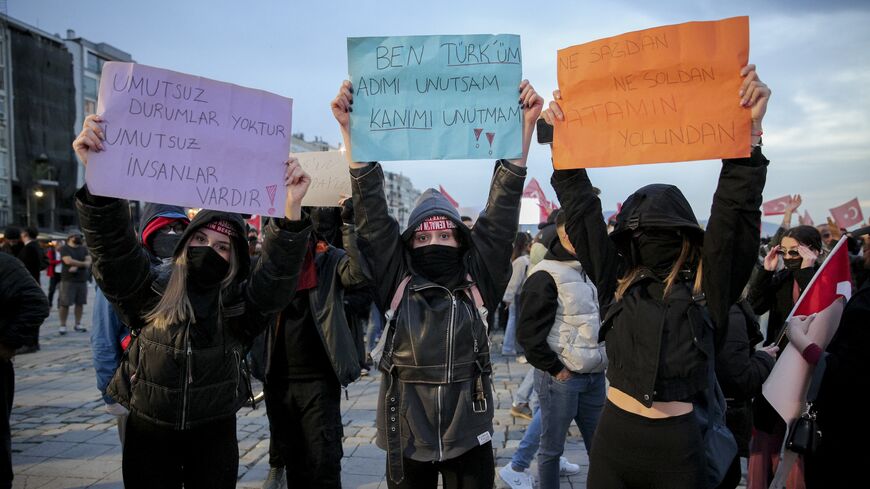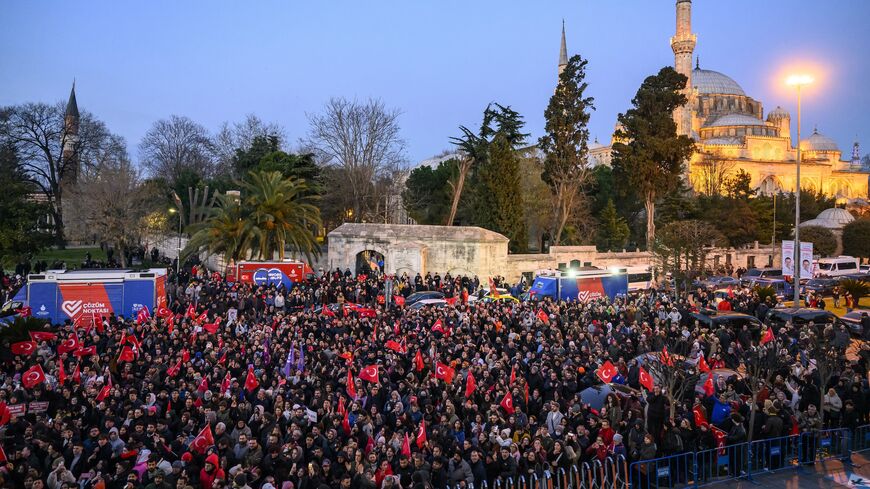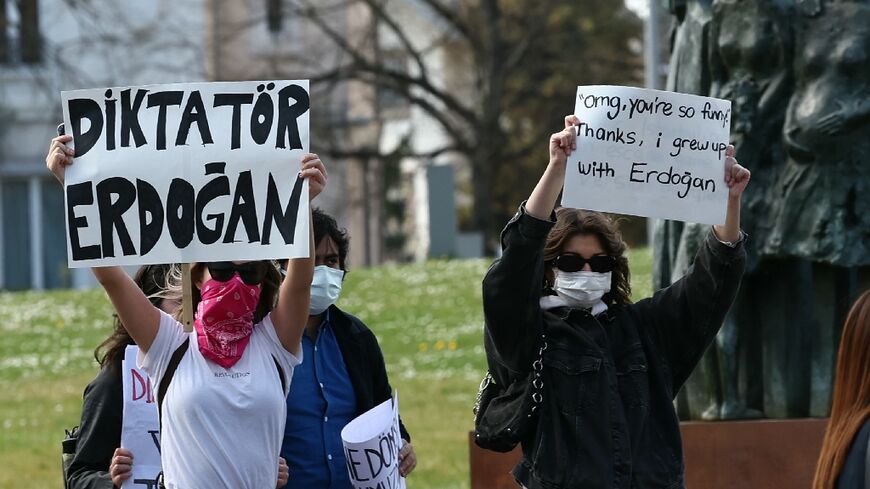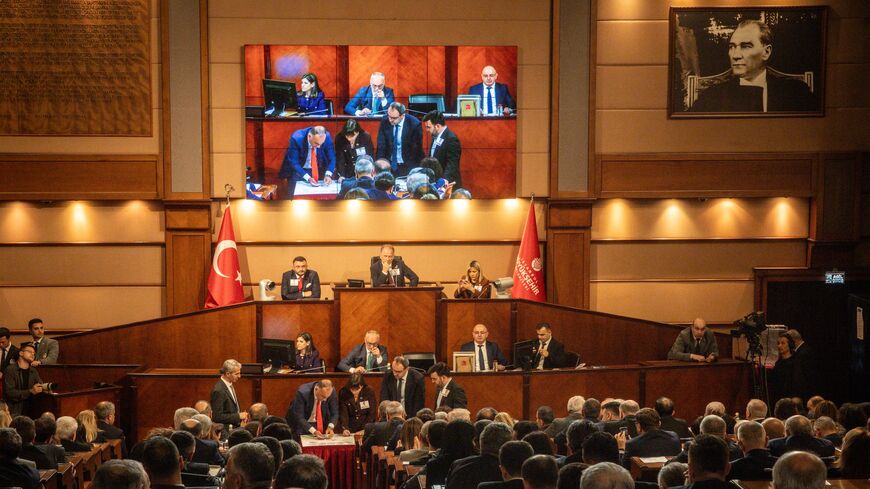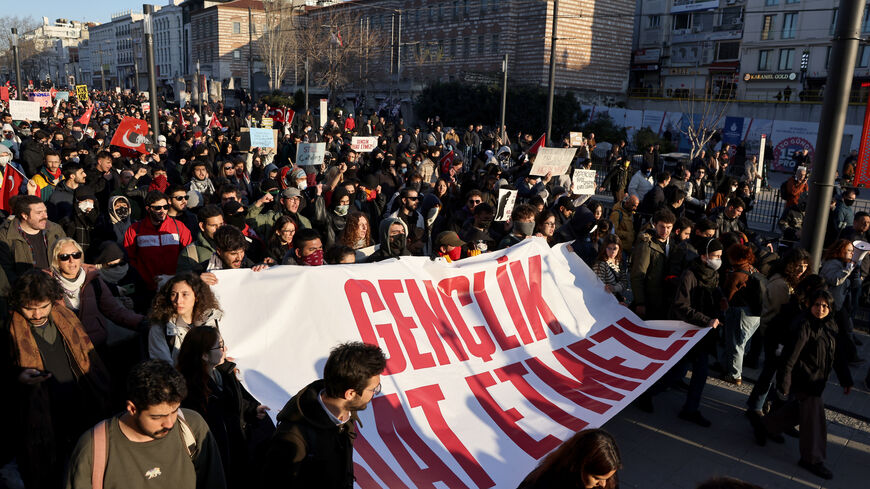Turkey’s Sozcu TV forced off air in latest crackdown on opposition: What to know
As Istanbul's mayor remains jailed, pressure mounts on opposition-aligned media to soften their criticism, analysts say.
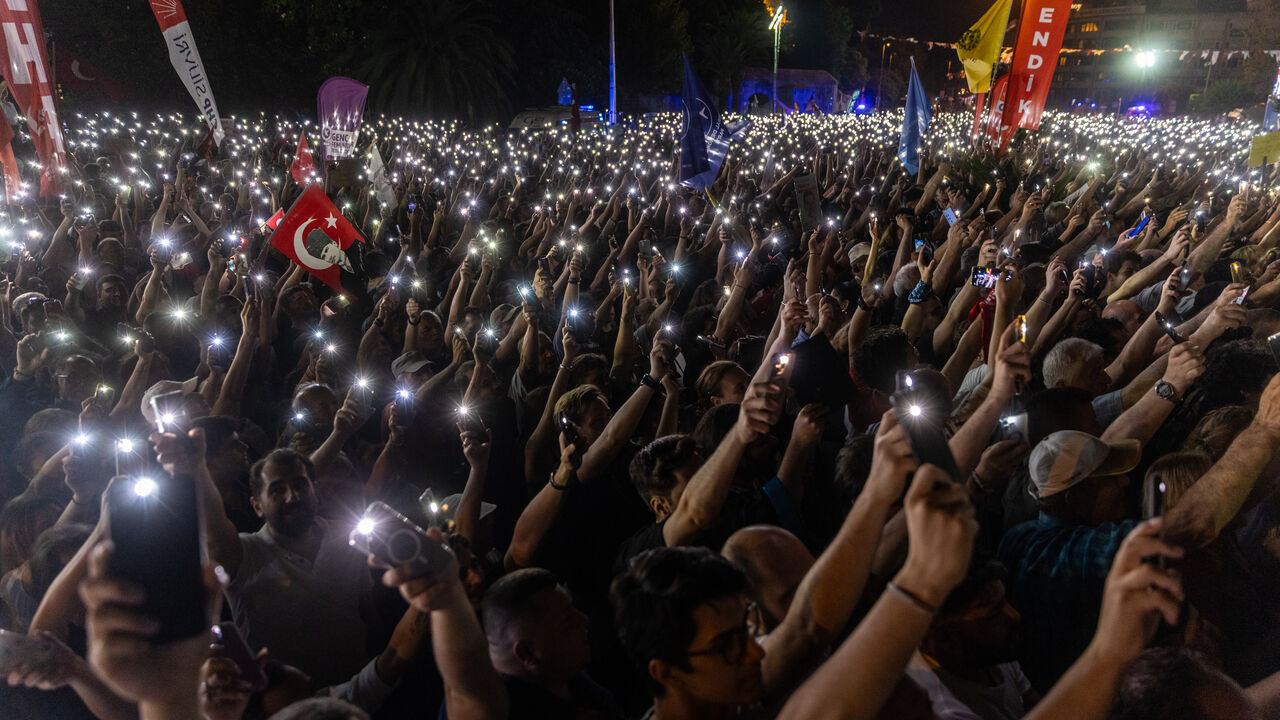
ANKARA — Turkey’s pro-opposition Sozcu TV went off the air for 10 days at midnight on Wednesday, local time, marking what many view as a fresh front in the country’s intensifying crackdown on dissent.
“When the clock strikes 12 [5:00 p.m. ET], Sozcu TV will go off the air,” Serap Belovacikli, an anchorwoman at the channel, told her viewers earlier Tuesday. “But will we give up? No! We will not stop being your voice.”
The silencing comes amid a widening crackdown on the main opposition Republican People’s Party (CHP), which has sharply escalated over the past week. Three more CHP mayors — including in former ruling party strongholds that flipped in last year’s historic local elections — were detained, fueling growing alarm over the state of democracy in the country.
RTUK, Turkey’s media and radio watchdog, slapped the outlet with a 10-day broadcast ban on March 27. Sozcu appealed the decision, but an Ankara court — which initially granted a stay of execution — reversed its decision days later. Launched in 2023, Sozcu TV is the broadcast arm of the Sozcu daily newspaper — one of Turkey’s most widely read daily papers, known for its staunchly secular, pro-opposition stance. While the TV channel itself is relatively new, the daily has long been a vocal critic of Turkish President Recep Tayyip Erdogan and his government, leading to its frequent targeting by tax probes and fines.
Sozcu TV went dark after the channel’s second request for a stay of execution failed to stop the ban. It has vowed to continue its legal battle in hopes of resuming broadcasts before the 10-day blackout ends.
RTUK does Erdogan’s bidding
The ban reminds “us that RTUK is acting as an arm of the presidency intent on doing the bidding of the executive, and ignoring the public’s right to information and basic tenets of free speech,” Emma Sinclair-Webb of Human Rights Watch told Al-Monitor in written comments she made prior to the blackout.
RTUK is officially an independent body but is widely seen as operating under government influence, as its board is dominated by members appointed by Turkey's ruling coalition.
“If no court decision halts the broadcast ban in the short term, we will see Sozcu TV subjected to a completely arbitrary and punitive 10-day suspension merely for legitimate news reporting,” Sinclair-Webb added.
RTUK cited the channel’s live coverage of protests that broke out after Istanbul Mayor Ekrem Imamoglu was jailed in March as a reason behind the broadcast ban, accusing the channel of “inciting hatred and enmity among the public.” Sozcu denies the accusation, saying it was merely doing its job as a news channel.
Imamoglu, a presidential contender for the CHP and a key rival of Erdogan, was detained on March 19, jailed on corruption charges and then suspended from his duties on March 23.
His arrest sparked the country's largest protests in more than a decade. Imamoglu denies any wrongdoing as he awaits the prosecutors’ indictment behind bars.
While government critics say the crackdown is designed to sideline a key Erdogan rival and weaken the country’s political opposition, the Turkish government insists that the judiciary acts independently.
Following the jailing of Imamoglu and the detention of more than 100 people — including senior officials working with him at the Istanbul Metropolitan Municipality — the sweep then extended to Turkey’s Aegean province of Izmir, with the detention of dozens, including the province’s former mayor, Tunc Soyer.
On Saturday, mayors of the Mediterranean provinces of Antalya and Adana, as well as the southeastern province of Adiyaman, were also detained. Adana Mayor Zeydan Karalar and Antalya Mayor Muhittin Bocek were arrested. Adiyaman Mayor Abdurrahman Tutdere, meanwhile, was released from custody earlier Tuesday and placed under house arrest.
Adiyaman, a historic stronghold of Erdogan’s ruling Justice and Development Party (AKP), flipped to the CHP in last year’s local elections.
The secular, center-left CHP secured 37.8% of the vote, emerging as the largest party for the first time since 1977.
The AKP, in turn, slipped to 35.5%, marking the first electoral defeat of its two-decade dominance — a blow compounded by surging inflation, which stood at over 35% in June, according to official statistics.
The prevailing view among government critics and political analysts is that the crackdown is rooted in that election. With the CHP maintaining its lead in recent surveys, the crackdown on the main opposition and media is widely seen as an attempt to blunt that momentum.
“Since March 19 [when Imamoglu was detained], the ruling party has launched a systematic judicial campaign to prevent the CHP from changing power through elections,” Berk Esen, an associate professor at Sabanci University in Istanbul, told Al-Monitor.
Aim is to rein in
The crackdown marks an unprecedented escalation against the country’s main opposition CHP, founded by Mustafa Kemal Ataturk, the architect of modern Turkey. But pressure on dissent is hardly limited to the main opposition.
The media crackdown has also intensified. Fatih Altayli, one of Turkey’s most prominent journalists, was arrested last month over allegations that he threatened Erdogan during a commentary on YouTube.
On Saturday, Turkish police detained another well-known journalist, Timur Soykan, over a social media post criticizing the detention of CHP mayors. An Istanbul court released him on Sunday under judicial control pending trial.
According to Erol Onderoglu, Turkey's Reporters Without Borders representative, the crackdown reflects “efforts to enforce a one-sided narrative in Turkey.”
“The judiciary’s ultimate approval of RTUK’s penalties raises separate concerns regarding the rule of law in the country,” he told Al-Monitor.
Esen, in turn, believes that pressures on the media are also aimed at reining in pro-opposition outlets.
“I don’t think the goal at this point is to shut these channels down completely,” he said. “Instead, the aim is for these channels to continue existing, but without maintaining a strongly oppositional line.”

